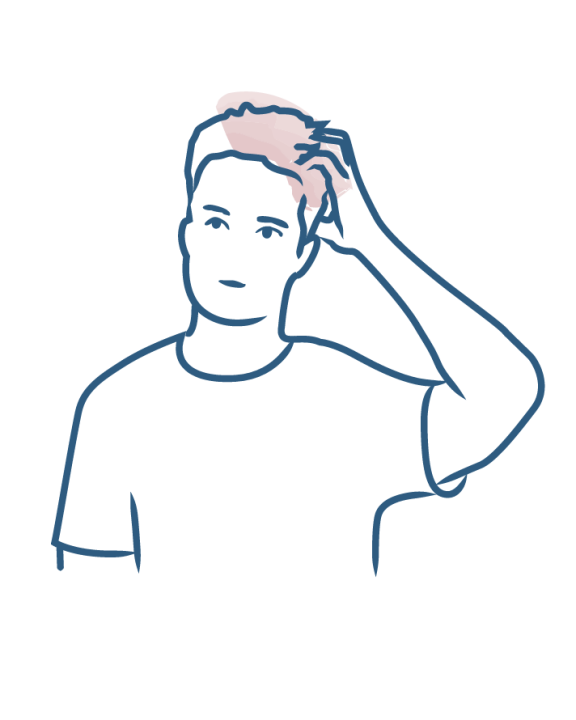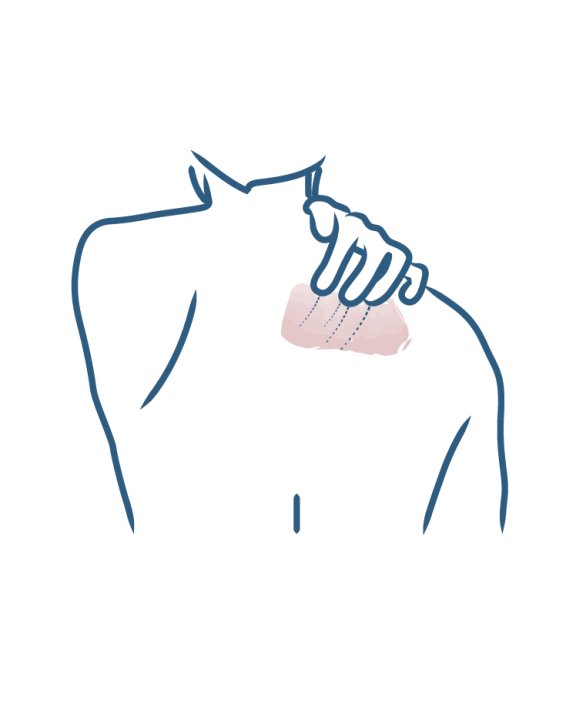Causes of itching: why do we scratch?
Senile Pruritus

Senile Pruritus
Senile pruritus is a form of pruritus that specifically affects the elderly. It is therefore a type of pruritus related to aging and for which no other cause has been found. Senile pruritus has significant physical and psychological consequences, whether the person still lives at home or in an institution. Senile pruritus should not be trivialized because its impact on quality of life can be major. The treatment of senile pruritus is based essentially on hygiene and skincare measures, to be implemented on a daily basis for effective relief.
Recognizing senile pruritus
Senile pruritus affects the elderly and is a kind of pruritus sine materia, i.e., pruritus of non-dermatological origin, without any skin lesion that could explain it. In the relatively long term, scratching lesions (or prurigo) can appear as well as, sometimes severe, psychological damage: anxiety, insomnia, and even depression can develop in elderly subjects affected by senile pruritus.
The diagnosis of senile pruritus is made when all other possible causes of pruritus have been ruled out. And there are many other causes, especially in elderly patients, patients with fragile health, polypathological and multi-mediated patients: dermatological diseases, drugs, blood diseases, cancers, chronic kidney disease, neuropathies, diabetes, cholestasis, etc. Finally, senile pruritus is the absence of all these causes. It is above all the pruritus of aging.
To rule out possible causes of pruritus, the physician first asks the patient questions and then performs a complete clinical and skin examination. If nothing that could explain the pruritus emerges during this first consultation, the doctor prescribes additional tests. If no pathology causing pruritus is found, it is probably a senile pruritus. On the other hand, if a disease explains the pruritus of the elderly person, optimal treatment of this disease is probably the best way to eliminate or at least reduce the pruritus
What causes itching in the elderly?
The exact causes of senile pruritus are currently unknown.
But then why do we scratch? Some hypotheses are being explored to explain senile pruritus, notably involving aging and age-related skin dryness or even possibly changes in the nervous system.
Aggravating factors are sometimes associated with senile pruritus:
- Baths that are too hot and/or too long;
- Unsuitable and/or poorly rinsed hygiene products: perfumed soaps, detergents or antiseptics;
- Overly aggressive washing: washcloths, excessive rubbing using perfumes;
- Irritating and/or tight clothing;
- Scented and/or overdosed laundry detergents and fabric softeners;
- Living in conditions that are too hot and/or too dry;
- Consumption of certain substances that promote senile pruritus, in particular the traditional stimulants such as tea, coffee and alcohol.
Relieving itching associated with senile pruritus
The treatment of senile pruritus sometimes relies on medication, notably antihistamines or even antidepressants in case of associated depression. Before prescribing a particular treatment, physicians carefully assess the benefit-risk ratio, since the elderly usually have many comorbidities and are already taking several medications. The practitioner should also explain to the elderly person with senile pruritus the value of the prescribed treatments and the expected benefit of each.
Hygiene is an essential point in cases of senile pruritus. Indeed, elderly patients must be encouraged to change their habits. For example, by opting for warm, quick showers as opposed to longer, hotter showers. Using a superfatted soap, a syndet or a cleansing oil, preferably without perfumes or irritating substances. Rinsing the cleansing products off well, and drying the skin by gently dabbing with a soft towel. Keeping fingernails short, and wearing comfortable cotton clothes.
The skin dryness associated with senile pruritus can be corrected with emollients applied once or several times a day. The presence of anti-itching active ingredients in the formulas helps to soothe the skin and limit scratching. Suggest placing the bottle of anti-itch cream in a cool place for a cooler, more soothing feeling, or on the bedside table for quick relief from nighttime itching.
More information
- Discover Pruritus gravidarum or itching related to pregnancy
Causes of itching: why do we scratch?
Pruritus gravidarum or itching related to pregnancy
- Discover Aquagenic Pruritus
Causes of itching: why do we scratch?
Aquagenic Pruritus
- Discover Sun Allergy
Causes of itching: why do we scratch?
Sun Allergy
- Discover Dermatological Pruritus
Causes of itching: why do we scratch?
Dermatological Pruritus
- Discover Pruritus sine materia
Causes of itching: why do we scratch?
Pruritus sine materia
Our care routines
Itching on the scalp or body


